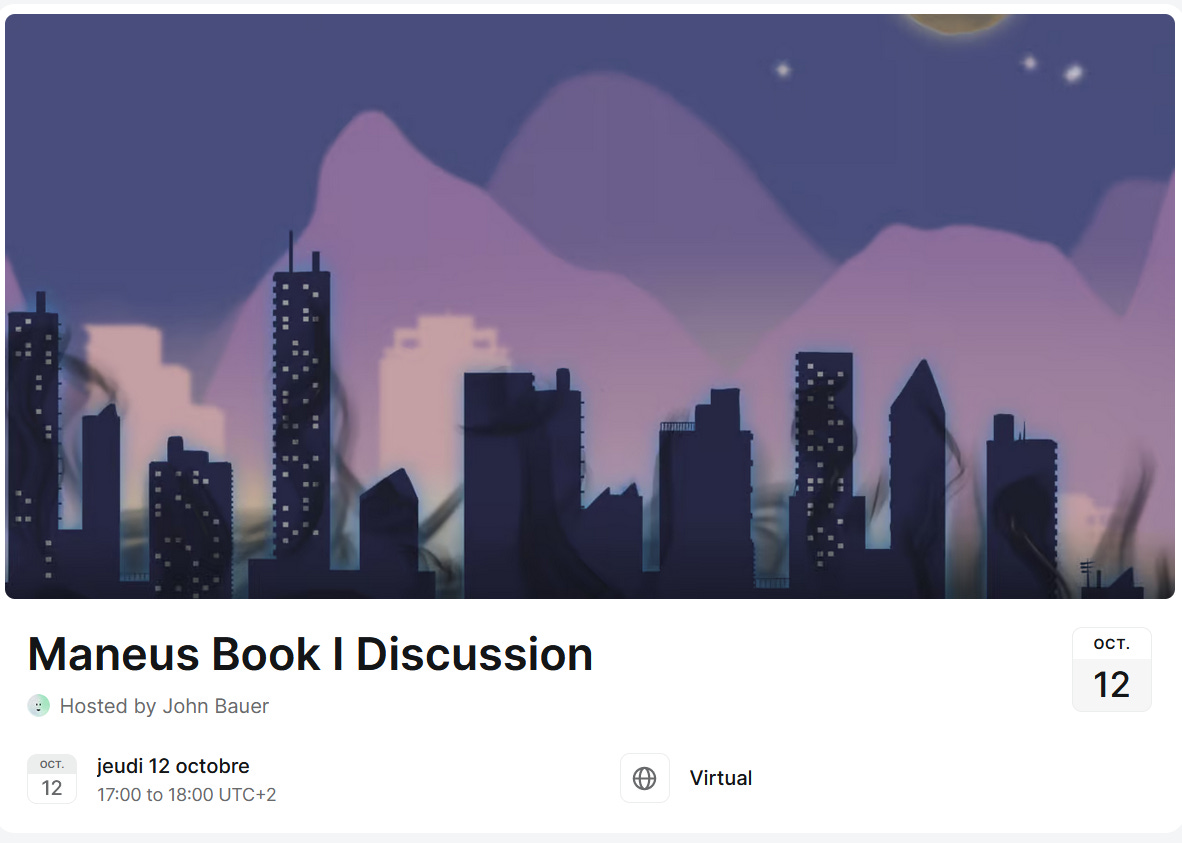Hey! What was the first thing you heard today?
For me it was the constant construction climbing up the walls, singing its morning song and inviting the neighborhood to join in the chorus.
Another Monday dripping down the calendar.
The knocking and scraping are actually similar to what my world was like when I first came up with the idea for Maneus.
Tearing down an old building with a sound ringing out to the unforgiving sky.
Slow, Annoying, and Unclear
That noise and its unrelenting pounding toward progress is how I imagine some view my story. A forced reminder of thoughts we would sooner hope to forever ignore. Pacing for a distant era that can’t keep up with quick quarterly breakdowns.
I’m inclined to agree, even if it’s only slightly hyperbole.
My dad once told me Maneus felt like reading an old translation of Russian literature. He meant it as a critique, but I took it as a compliment. Dense prose meant to hold its own against the strongest elements of our time.
I freely admit that is not the right recipe for a light or an easy story though. But never was that ever my intention. No, Maneus was and always should be raw creative energy that I committed to paper without consideration for target audiences or marketed genres.
The descriptions I’ve found to fit the cover have mostly been made after the fact. Creating a puzzle from the pieces of my inspiration.
However, once I accepted a few norms, I decided it was better to lean into them. Thus, my book as a modern reimagining of ancient epics was born. I didn’t want my strong ideals to get in the way of people otherwise experiencing the tall tale I wanted to tell!
After that leap of faith, I then took measured steps to curate an easier-to-digest story that wasn’t afraid of its original grander themes. In clearer terms, with every rewrite I aimed to keep the thickness of the stew, but added some more familiar flavors, playing between heroes and villains.
Kingdom of Chaos
The main arc of Maneus focuses on generational trauma in the form of a classical battle against some kind of primordial evil.
Those ideas then translate into what I call the chaos as a concept and Dwolmarik as the antagonist. Although the stakes and the scale seemingly start small, Maneus and his bloodline have always had their fate intertwined with the greatest threat to their reality.
Humanity’s wars, violence, rage, and regrets are at the core of the discussions found in the book. Past and present, destiny and future, everyone in Maneus finds a way to continue the predetermined struggle against Dwolmarik.
Every generation finds a new way to express their earnest wishes.
Every generation finds their heroism in their shortcomings.
The question I wanted to ask with these themes was whether or not we could accept a savior if they were fundamentally flawed.
What if the best of humanity isn’t a good person?
Book Club Meetup
In less dramatic words, the Maneus book club is still going on and I want to try having a virtual meetup for the end of Book I.
Feel free to join no matter how much you’ve read. I’m confident everyone can catch up in time with Book I being so short!
And as always, I would love to hear your thoughts and know your feelings about my work.
If speaking with a group or leaving public posts aren’t comfortable for you, feel free to send me a message and I’ll find a time and a way for us to chat - be it simply emails or other archaic forms of communication.
Until next time.
Cheers,
John








